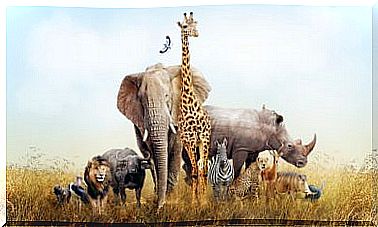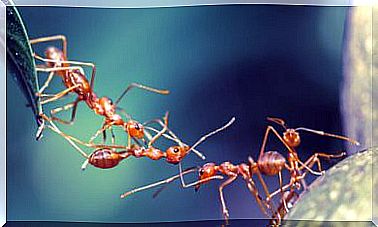Do Dolphins Feel Empathy?
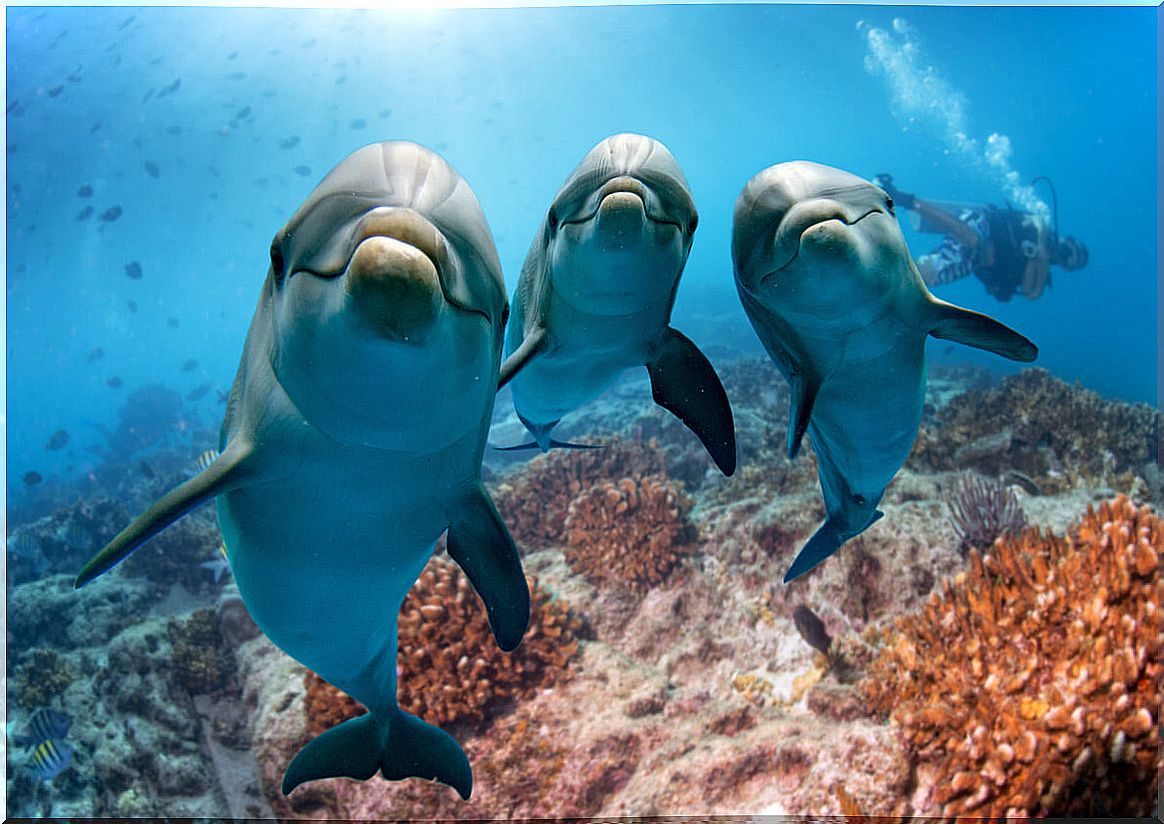
In popular culture there are countless stories about dolphins saving shipwrecked people, fishing, and coming to shore in search of human company. All of this raises a logical question: Are we really something to them? Does the fact that these animals take someone who is drowning out of the water mean that dolphins feel empathy?
Empathy is a complex mental process that requires high cognitive development — evolutionarily speaking — and a social mind. Dolphins, despite meeting these requirements, have a reputation for not being as friendly as zoos lead us to believe. If you are interested in unraveling this question, read on.
Empathy and theory of mind
We can define empathy as the cognitive ability of an individual to understand and participate in the feelings of the other. Have you ever been given a yawn? Perhaps a friend has told you “don’t cry, then I’ll cry.” All of that is empathy: feeling what the other is feeling.
Empathy arises as an adaptive process in social species, since it is one of the most sophisticated mechanisms for coexistence between individuals. Without it, group cohesion is impossible to achieve. In addition, the requirements for empathy also include self-awareness and that it be generalizable to the other members of the association.
This projection of self-awareness is what is known as the theory of mind. A good example would be to put a specific song to a friend who is having a hard time because we remember that it helped us lift our spirits: we are assuming that the same process will occur in his mind as in ours.
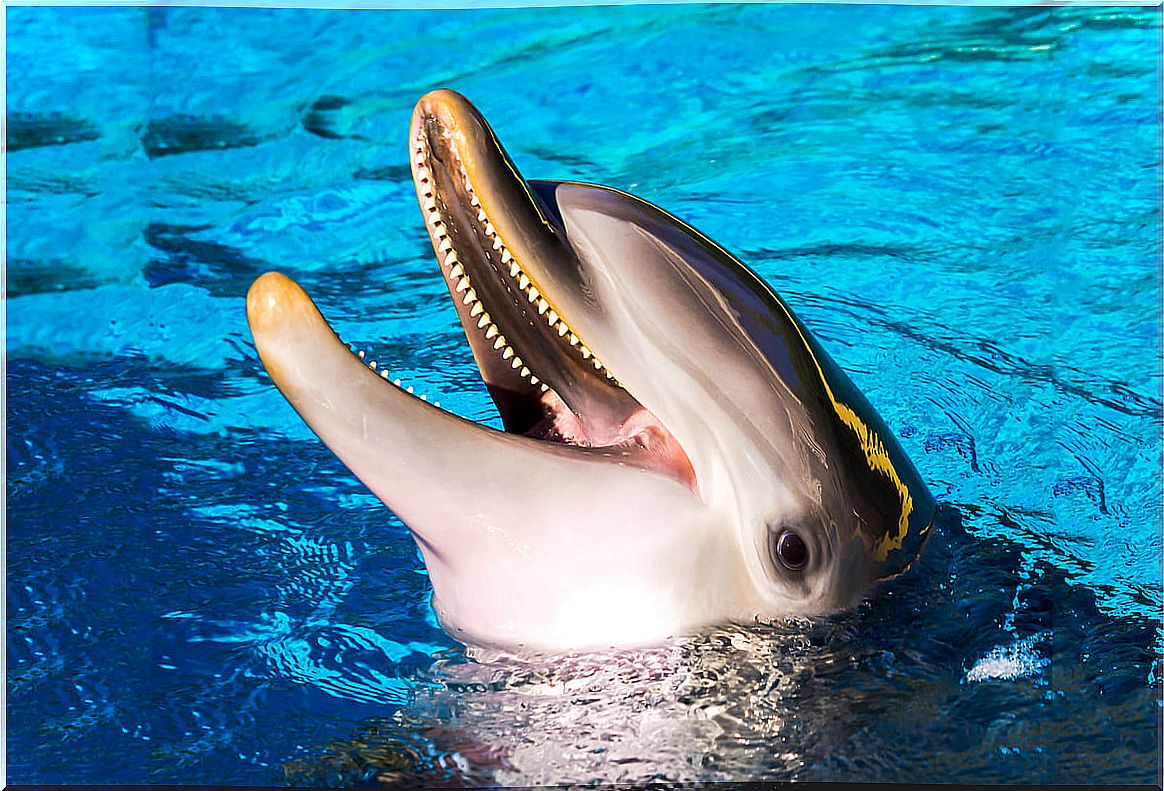
Dolphins and the theory of mind
Dolphins have more than demonstrated their ability to recognize themselves in the mirror, to have a complex social system and highly sophisticated communication. But what about the theory of mind? Do dolphins attribute their mental states to others?
The answer is yes. In 2010, Uwano and his group of researchers demonstrated this in an experiment in which dolphins, trained to follow a series of commands through gestures, were more inclined to respond to the direction of the keeper’s gaze than to the gesture itself. .
That is, the dolphins paid more attention to what they believed their keeper wanted than to the order itself. Given all this, can it be said that dolphins feel empathy? The answer is yes. Here’s how this fact was proven.
Dolphins feel empathy and act accordingly
Empathy is a process already demonstrated in the most diverse non-human species, from small mice to elephants, but there is no choice but to study it through indirect observations, that is, based on its consequences. How does one show empathy? The answer is very simple: through helping behaviors.
Before conducting any experiments, several suspicions had already been raised that dolphins are empathic. We show you some pretty clear evidence of this:
- Diving in areas where there are dolphins is relatively dangerous, but not because they can attack you: dolphins know that humans do not breathe underwater and try to save divers by thinking they are drowning. The sudden change in pressure from coming to the surface too fast can cause damage to the body.
- Dolphins defend other species of sharks: these large fish are the natural enemy of dolphins and there are several stories that tell how they defend swimmers from shark attacks or act as bait to keep them away from groups of whales.
- Dolphins Help Their Kind: When a dolphin in the group is too weak or injured, the other members of the group swim around it to protect it and help it rise to the surface so that it can breathe.
On the other hand, in controlled environments and experimental conditions, the following milestones have been discovered regarding empathy in these animals:
- The enormous complexity of their social system is the breeding ground for empathy: the dolphins’ large brains and their long childhood create perfect conditions for developing a sense of group cohesion and acting accordingly.
- The mother-child relationship is key to the development of empathy in dolphins: mothers teach the calves how to behave in the group through their behavior, but also with their own words, since they identify with whistles and speak one of others.
- Their ability to imitate behaviors is part of the development of empathy: in comparative psychology studies it was observed that the baby dolphin developed empathy for the other members of the group by imitating the behaviors of the mother.
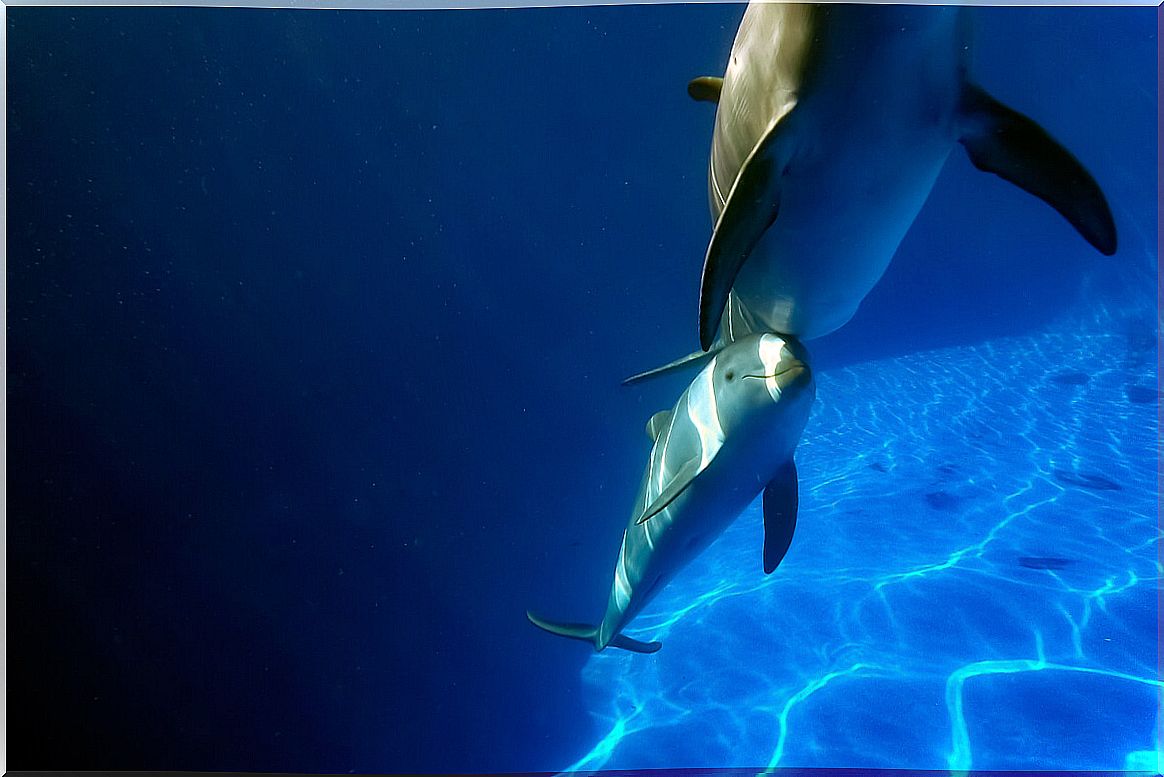
In conclusion, we will quote the famous anthropologist and ecologist Loren Eyseley. He spoke of “ending the long loneliness,” where the human species gets rid, after thousands of years, of the feeling of isolation that comes with believing that we are the only intelligent beings that exist. And you do you think?

